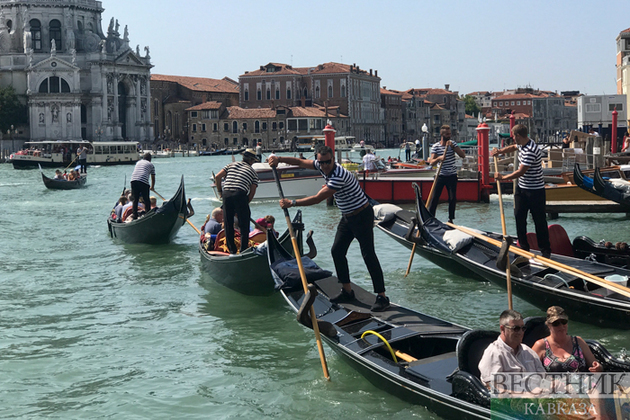The surge in global energy costs is reigniting the debate on Italy’s no-nuclear stance, Politico writes. Right-wing parties are pushing for a rethink of the country's long-standing nuclear ban, citing the need to attain energy sovereignty to manage rising energy bills and to fill the gap left by fossil fuels as they're phased out thanks to climate change pledges.
Matteo Salvini, leader of the pro-industry League, on Saturday announced a petition to force a consultative referendum on reintroducing nuclear energy. The League “is ready to collect signatures for a referendum which will bring our country toward an independent, safe and clean energy future,” he said, tying the effort to the European Commission's recent draft policy that would give gas and nuclear energy a climate-friendly label for investors.
Salvini is trying to roll back history
Italy was a pioneer in nuclear energy, but a referendum after the 1986 Chernobyl disaster led to the closure of its reactors by 1990. Former Prime Minister Silvio Berlusconi attempted to resurrect nuclear, but his plan was derailed in 2011 by another referendum, this time following the Fukushima accident in Japan.
That's made Italy the only G7 country without its own nuclear power plants, and it's also the world's second-largest net importer of electricity.
Before the pandemic in 2019, the price of electricity was about 25 percent higher in Italy than in France. The ongoing energy price surge is making matters even worse; power prices are expected to jump 55 percent in the first quarter of this year, according to energy watchdog Arera. The government is trying to minimize the pain by doling out €10 billion in relief, something Paolo Arrigoni, League spokesperson for energy issues, called, “Good but inadequate.”
The long-term answer, he said, lies in a return to the atom. "Italians pay more than other European countries for energy, which weighs on our economy. To have energy that is adequate, continuous and reasonably priced, we must diversify,” he told POLITICO.
The parties forming Italy’s governing coalition — the far-right League, the populist 5Stars, the center-right Forza Italia and the center-left Democratic Party — are divided on nuclear power.
The 5Stars, with its roots in ground-level ecological protests, is opposed. 5Stars MP Davide Crippa said reactors could not be built in time to reduce bills and slash climate-changing emissions. “The solution evoked by Salvini would not be capable of producing a kilowatt of electricity in the next 10 years,” he said.
Roberto Cingolani, the technocrat scientist who serves as ecological transition minister, is open to the idea of building futuristic small modular reactors (SMRs) when they become available, saying nuclear power “cannot be ruled out as part of clean energy plans.”
Forza Italia also backs new nuclear technology. Senator Anna Maria Bernini calls Italy's current stance of having no reactors but buying vast amounts of nuclear-generated power from France “hypocritical.”
“Italy has for decades received energy from French nuclear reactors. Without it, we would have higher carbon emissions,” she said.
Prime Minister Mario Draghi has been more cautious, emphasizing a common European approach to energy procurement and storage, while stressing that the priority “is to limit the volatility of prices” and to boost renewable energy. He's skeptical nuclear can play a role in the short term, saying last year that nuclear power “will take a long time." That underlines that it's a very long road from Salvini's call for a referendum to actually building a reactor.
Even if the League collects the half-million signatures needed to force a popular referendum on nuclear power, opponents say it might not get the go-ahead from the country's constitutional court, as referendums are only supposed to be used to cancel existing laws, not to create new ones. And even if the referendum happens, it's not certain that public opinion has shifted enough to give a different result to the votes held in 1987 and 2011. An opinion poll last year found that a third of Italians backed reconsidering nuclear power, while 56 percent would not exclude new nuclear technologies.
“I don’t know if they have changed their minds," said Arrigoni. “The circumstances have changed. Technology has improved. We want to have a rigorous scientific debate.”






